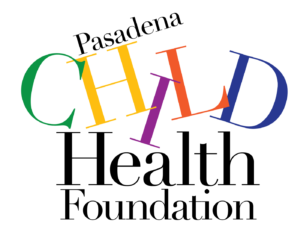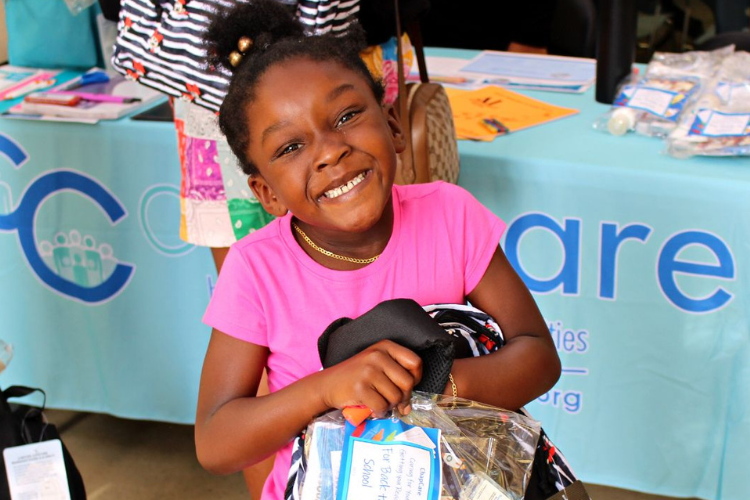Pasadena Child Health Foundation

Grant GUIDELINES
Vision — Pasadena Child Health Foundation (PCHF) believes that all children should be healthy and able to develop to their full potential.
Mission — Pasadena Child Health Foundation provides funding to reduce disparities that adversely impact the health of children residing in the Pasadena Unified School District attendance area.
Focus — PCHF invests in prevention and early intervention strategies and activities that incorporate the principles of collaboration, leveraging existing resources, and expanding capabilities to improve the health and well-being of Pasadena-area children in three priority areas: Healthy Early Childhood Development, Family and Community Connections and Healthy Body and Sound Minds.
Deadline for Applications — The 2023 application period is now closed.
Online Application System — PCHF uses PCF’s online grant application system, available here.
Grant Amount — Grant requests up to $25,000 will be accepted.
Target Population —Proposals impacting children and youth living or attending school in the Greater Pasadena area, defined as the PUSD attendance area, which includes the communities of Pasadena, Altadena, Sierra Madre, and some unincorporated parts of Los Angeles County.
Funding Priorities
PCHF encourages proposals that are focused on prevention and early intervention in addressing one or more of the following priorities. These approaches are encouraged as they have been demonstrated to reduce the burden of illness, promote health equity, reduce costs, and contribute to the overall health and quality of life for children, families, and communities.
Promoting Healthy Early Childhood Development
Optimizing physical, cognitive, and emotional development during pregnancy and throughout the first eight years of life.
The earliest years are crucial for building the foundations of health, beginning with the health of the mother. Strengthening parenting competencies and educating parents and families can improve outcomes for young children. Prenatal care, breastfeeding, healthy parent-child interactions (reading, storytelling, and interactive communication, “serve and return”), and other practices can be strengthened through a number of promising and evidence-based family strengthening and maternal engagement strategies.
Strengthening Family and Community Connections
Enhancing protective factors, individual or environmental conditions that reduce effects of stressful life event, serve as a critical platform for healthy behaviors and development.
A child’s health is determined by where and how the child spend his or her time. Caring for the whole child means extending support to the family and the network of support that can influence a family. The focus of these protective factors is to ensure that children are safe, facilitate strong relationships in the child’s life, increase the strength of the family to care for the child, and reduce the likelihood of child abuse and neglect.
Healthy Bodies and Sound Minds
Helping children engage in healthy lifestyles with an emphasis on proper nutrition, exercise, mental wellness and access to preventative care (sexual and reproductive, dental, and mental healthcare).
Having a healthy body and sound mind is about being aware and making healthy choices about diet, exercise, sexual health, and staying positive. Mindsets about health-relevant outcomes (e.g., weight and fitness) affect motivation and engagement in health behaviors.
Strong Applications
- Focus on strategies that emphasize prevention and early intervention.
- Have clear and measurable impact on the population the program is serving.
- Address well-documented community needs.
- Demonstrate responsible stewardship of resources.
- Focus on strategies that are culturally relevant and responsive to racial/ethnic disparities and reduce long-standing inequities in the fundamental building blocks, or “social determinants,” of health.
- Encourage access to health benefits and services by removing barriers faced by children and families who are isolated and vulnerable.
- Emphasize collaboration with other organizations to strengthen their efforts and their impact, as well as leverage limited resources.
Nondiscrimination Policy
The Pasadena Community Foundation does not make grants from its discretionary funds to organizations that discriminate on the basis of actual or perceived race, age, color, gender identity, marital or parental status, military service, national origin, physical or mental ability, political affiliation, sexual orientation or religion.
Eligibility Requirements
Eligible Organizations/Entities
- Nonprofit organizations that are exempt under Section 501(c)(3) of the Internal Revenue Code
- Public charities as defined in IRC Section 170(b)(A)(vi)
- Government agencies
Ineligible Organizations/Entities
- Individuals
- Organizations that are located outside the United States, or have been incorporated by a non-U.S. government
- Private foundations as defined in IRC Section 509(a)
Grants are not awarded for the following activities or items:
- Direct clinical services that are not combined with prevention and education.
- Those that do not benefit the target population
- Annual fund drives
- Building campaigns
- Major equipment purchases, such as major scientific instruments, office furniture, or vehicles
- Biomedical research
- Activities that exclusively benefit the members of sectarian or religious organizations
- Services already funded through public programs
Grant Report Deadlines & Compliance — Strict reporting requirements must be followed in order to qualify for future grants. Reporting information for grantees is available in PCF’s online grant system.
Current PCHF Advisory Board
Jennifer Chuang, Chair
Shanica Davis
Miriam Lopez
Marilyn Myers
Scarlett Powers Osterling
Jean Richardson
Robert James Riewerts
Armineh Tavitian
Pamela Weatherspoon


